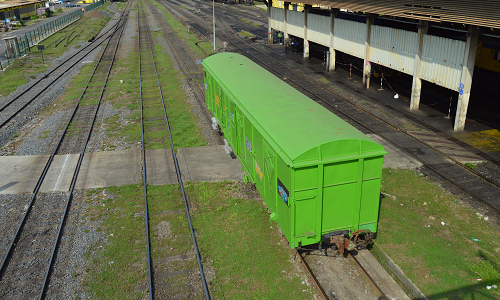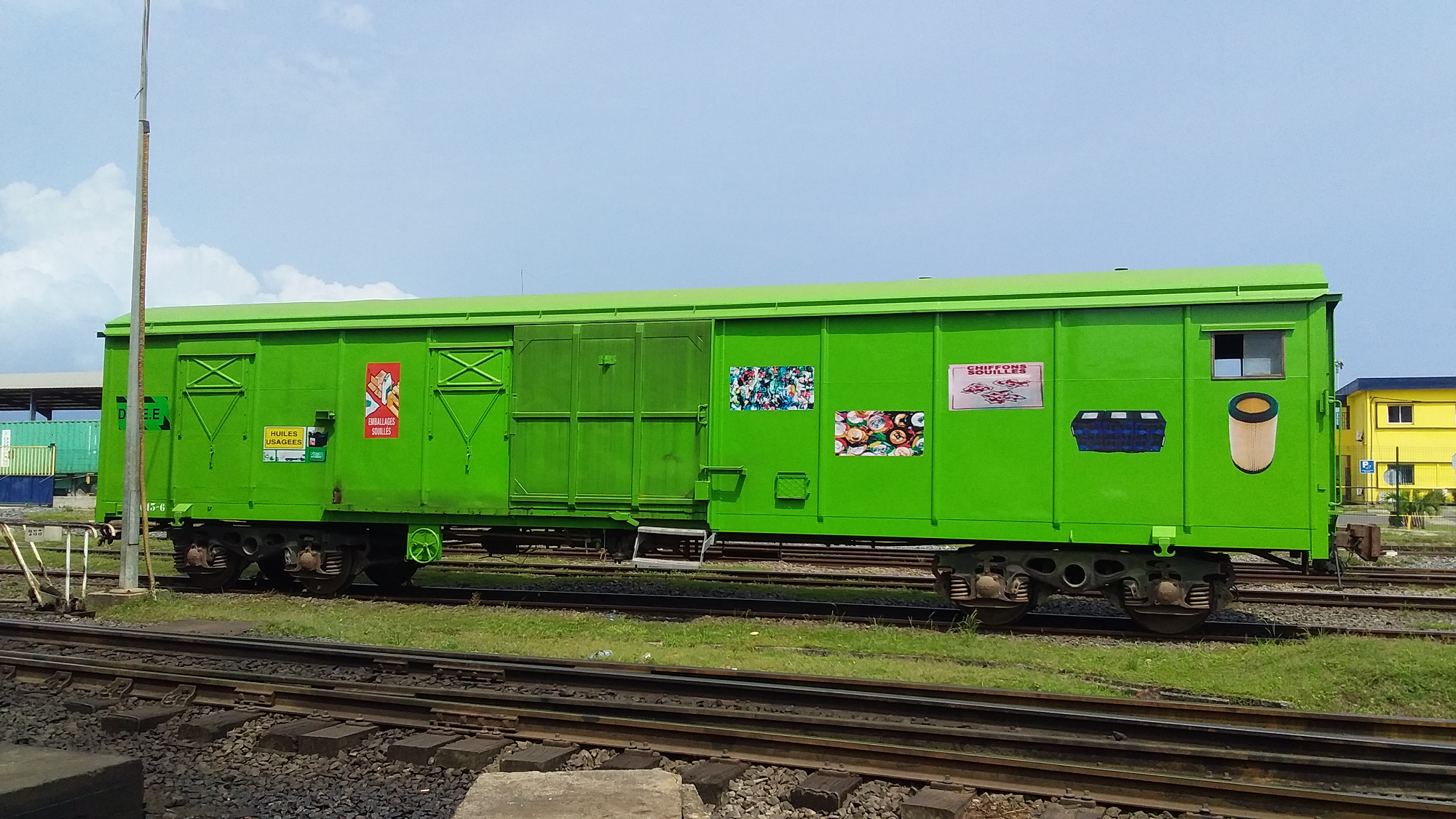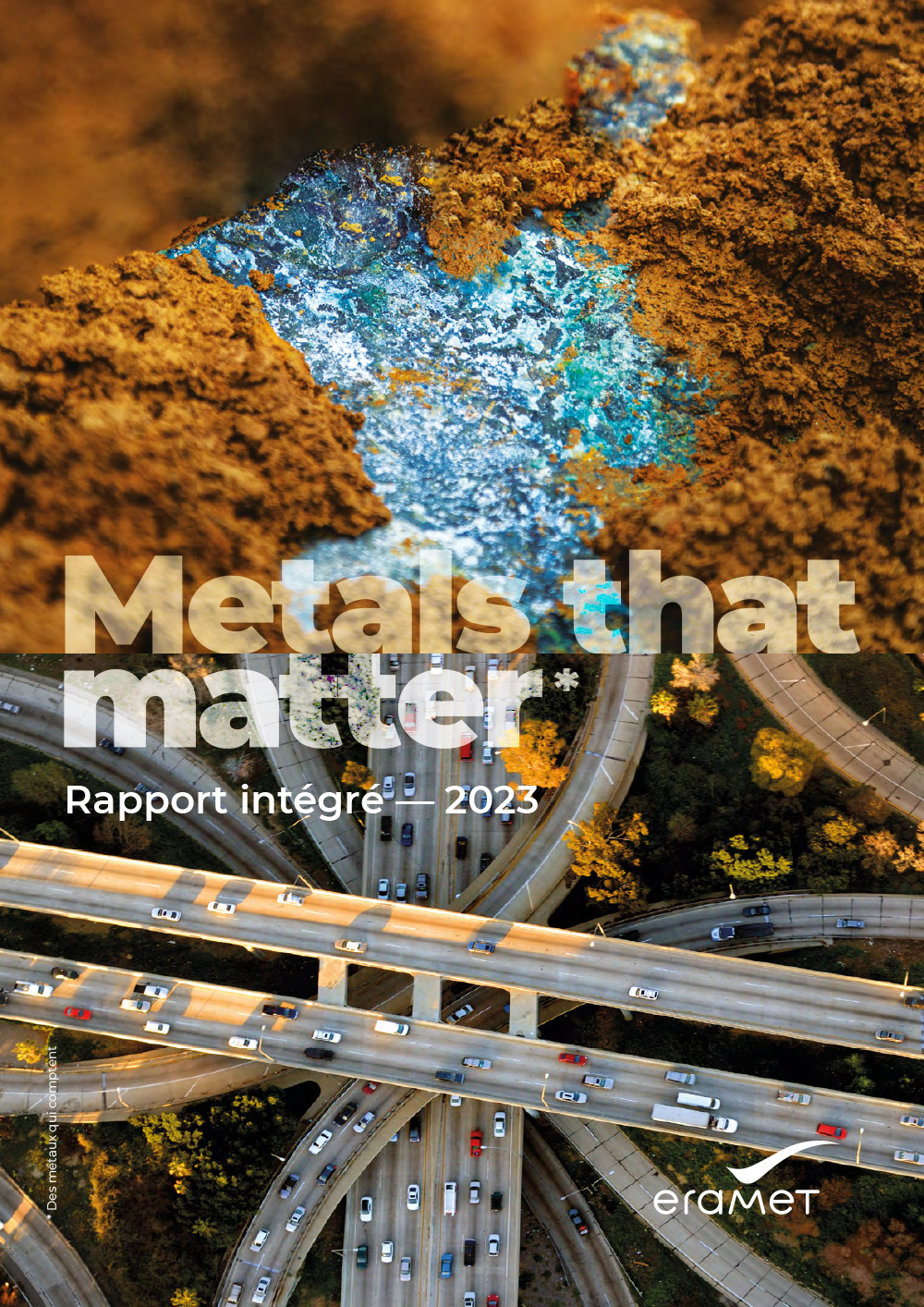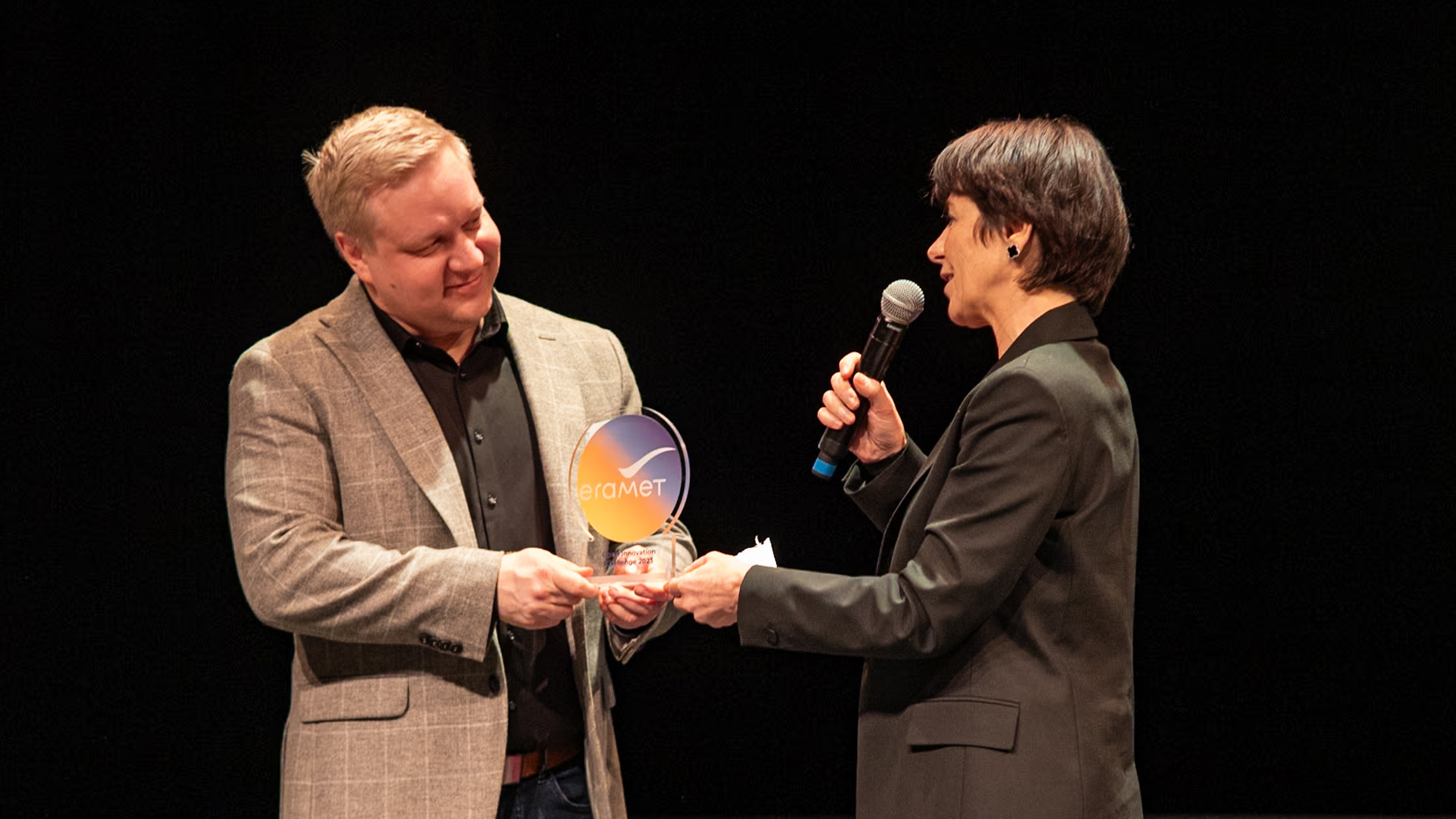At Setrag, an Eramet Group’s subsidiary, blue and yellow wagons are now being joined by a green one reserved for the transportation of waste.
Setrag transports goods, people and merchandise. But did you know that the company also transports waste in its new “green wagon”? The waste originates from the company’s own activities, or those of its service providers or subcontractors. During the first wave of Covid-19 in Gabon, the green wagon also transported medical waste, not only from Setrag but also — free of charge — from hospitals located near the line.
Where does the idea of a “green wagon” come from? Setrag came to a simple realization: certain waste is hazardous to health or the environment and can now be treated by specialized companies in Libreville and its suburbs. However, there is no safe way to transport such waste.
Setrag thus decided to find a solution: “In the past, we simply loaded the waste into an ordinary freight car, but this approach was unsatisfactory. So, we came up with the idea of building a wagon specifically for transporting waste. In 2019, we found a suitable train, and a service provider took care of renovating it to make it watertight, refurbishing the roof and the lower part of the freight car, and making interior improvements. It took five months to fit it out,” explains Stevy Bérenger Meye Meye, Line Environment Manager at Setrag.
This “green wagon” (which is literally painted green) is the result of an initiative undertaken by the Environment and Energy Management Department, which is part of the new Sustainable Development Department. It is designed to safely transport various waste products, including hazardous waste, from remote areas of the country to Owendo: electrical and electronics waste, batteries, used oil, filters, plastic waste and bio-medical waste. “During its development, the wagon was conceived to be divided into four compartments in order to transport these different types of waste. For example, 1000-liter tanks were installed for the transport of used oil. On arrival at Owendo, the waste is stored on a collection platform where it can be picked up by specialized service providers for processing,” says Dominique Sibiffa Nnang, Head of the Environment Division at Setrag’s Owendo site.
- 36 tons of waste transported by Setrag in 2020.





